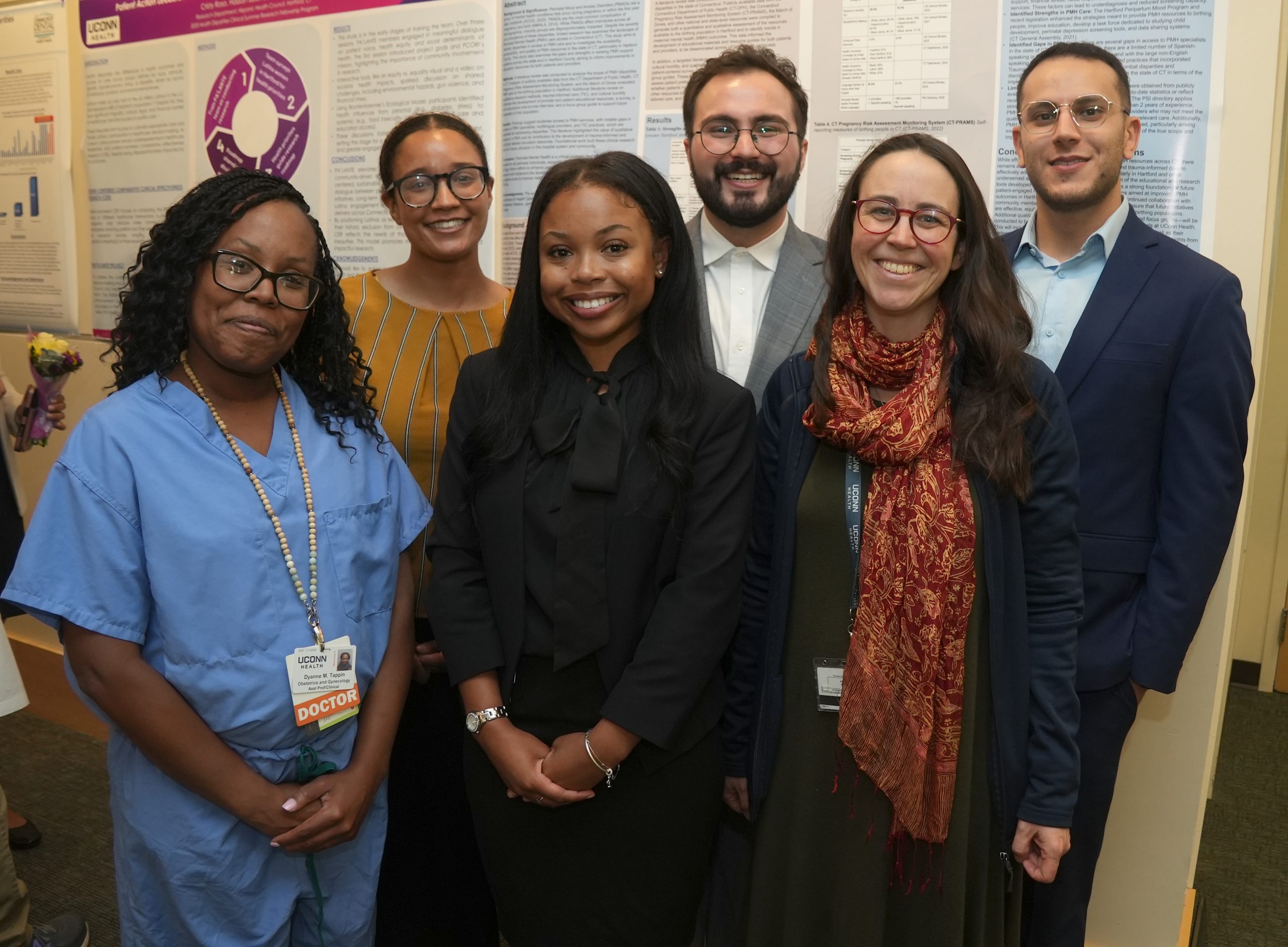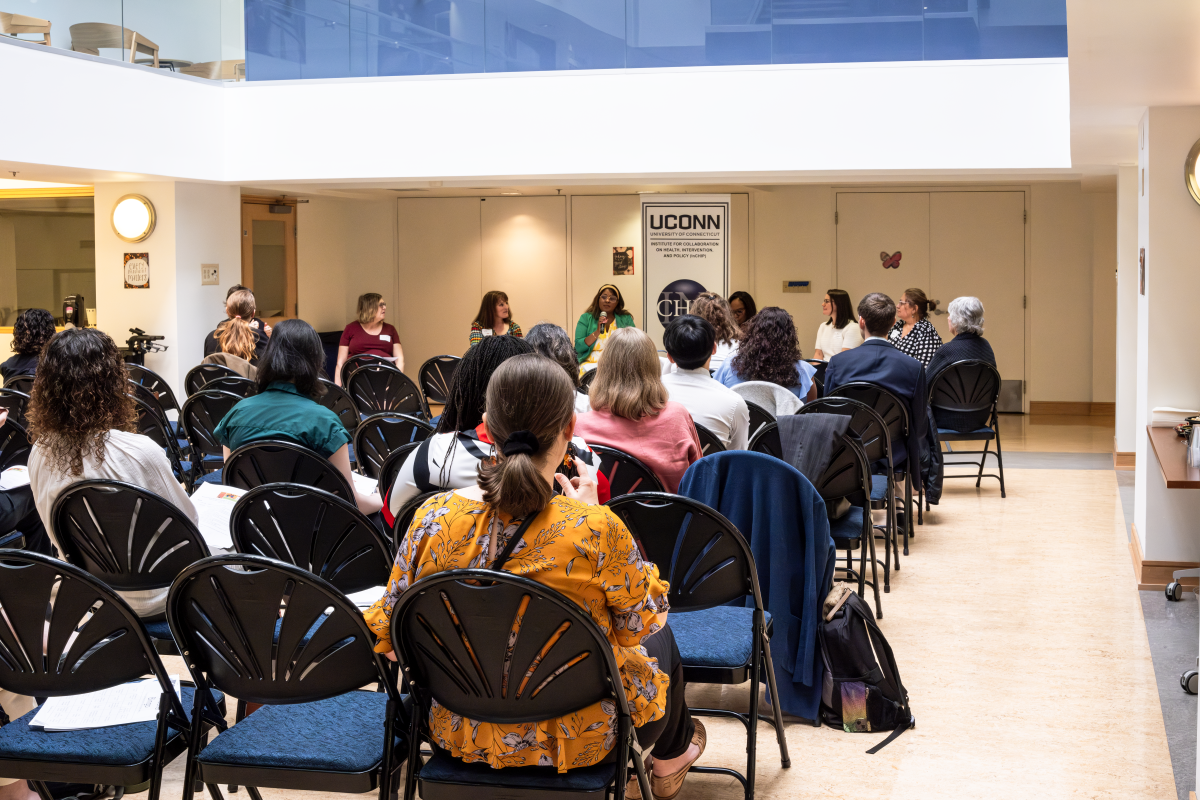Roadside forests provide Connecticut residents with beautiful scenery and ecosystem benefits, but they can come at a cost, especially when storms hit. Managing these trees is critical for maintaining utilities infrastructure to keep the power on and to ensure vehicles and pedestrians stay safe.
Durga Joshi, a doctoral student in the Department of Natural Resources and the Environment (NRE) in the College of Agriculture, Health and Natural Resources (CAHNR), is developing a technology to make monitoring trees cheaper and easier. With the help of dash cam videos and UConn entrepreneurship programs, Joshi created an algorithm to detect information about trees and utility infrastructure along roadways.
“Dashboard cameras filming in a car traveling down the road can tell us where threatening trees are – ones that could fall on a road or sidewalk or on power lines and cause a power outage,” says Joshi. “This approach could improve regular and real-time monitoring of situations where trees can be a problem.”
Traditional methods of mapping vegetation risk are expensive and time-consuming. Satellite images can look at a wide area, but angle and resolution limitations might not detect the most at-risk areas for tree failure. Manual inspection of roadway trees is labor intensive and conditions on the ground can rapidly change, especially when extreme weather events occur. Given these challenges, Joshi reflected on how to get up-to-date information about roadway trees and put that information to action quickly.
By capturing video along Connecticut roads through low-cost, high-definition dashboard cameras, Joshi says he can collect valuable data about the forest structure, condition of the trees, and make more accurate assessments about the surrounding infrastructure and its proximity to these hazards.
“With better data, we can more easily find and address the risky areas. I decided to explore how to make this work in real life by pursuing funding through Get Seeded and Accelerate UConn,” says Joshi.
Get Seeded is a competition organized by the Connecticut Center for Entrepreneurship and Innovation in the UConn School of Business. It gives UConn students an opportunity to present their business ideas and win seed funding to turn them into actual products. Get Seeded holds pitch nights, where participants receive votes for their ideas. The top three innovations win a modest investment. Joshi’s concept won second place in fall 2022, and he says the award allowed him to continue developing the idea into a working model.
Joshi, along with his PhD advisor and supervisor of his project, Chandi Witharana, an associate professor in NRE, received further investment from Accelerate UConn in spring 2023. Accelerate UConn is UConn’s National Science Foundation Innovation Corps (I-Corps) Site. It focuses on aiding entrepreneurs working with technology that is likely to be commercialized. Using dashcam footage he personally collected, he has been training the algorithm and refining it.
By using state-of-the-art artificial intelligence technology, Joshi says he can automatically detect information about trees, including their species, density, crown and canopy cover, as well as data about nearby infrastructure, such as utility poles. And this wealth of forest finds can come straight from residents driving along their normal routes all over the state. Joshi aims to create an online portal where drivers can share their footage to aid in this citizen science initiative. These data can be used to localize the risk areas.
“This idea could benefit utility companies, town administrators, city planners, transportation supervisors, arborists, as well as land and forest managers.”
This project contributes to UConn’s joint efforts with Eversource Energy to make Connecticut’s utilities infrastructure more resilient and prepare for extreme weather. Through this unique partnership with New England’s largest energy provider, UConn’s College of Agriculture, Health and Natural Resources, along with the School of Engineering and School of Business use cutting-edge research to solve real-world challenges where weather, security, and energy intersect.
Joshi hopes his work can serve as another valuable tool to keep the lights on and people safe across the state and beyond.
“These data can improve the approaches we use to protect the powerlines from trees and make roadways safer for all of us,” says Joshi.
This work relates to CAHNR’s Strategic Vision areas focused on Advancing Adaptation and Resilience in a Changing Climate and Fostering Sustainable Landscapes Across Urban-Rural Interfaces.
Follow UConn CAHNR on social media


